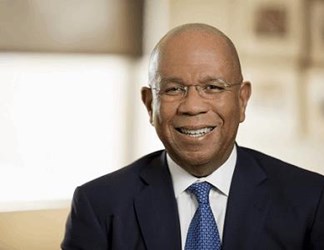From Segregated Schools To Harvard — The Journey Of The President And CEO Of Otsuka Pharmaceutical

By Rob Wright, Chief Editor, Life Science Leader
Follow Me On Twitter @RfwrightLSL

From The Cutting Room Floor: October 2016 Issue
Why Otsuka Diversified Into Digital Health
Prior to my interview with William H. Carson, M.D., I noted that the president and CEO for Otsuka Pharmaceutical Development & Commercialization, Inc., (OPDC) matriculated at Harvard University. As my daughter was soon to be attending Berklee College of Music, also based in the Boston area, I was curious as to how Dr. Carson came to be enrolled at the institution. “Do you want the short story or long story?” he laughs. I soon came to learn that Dr. Carson grew up in Columbia, SC, the son of two teachers. “My mother was an elementary school teacher, and my father taught vocational subjects (i.e., architectural drafting and mechanical drawing),” he reveals. “Until junior high school I went to segregated schools.” Meaning, as he is African-American, he attended black-only schools. Further, Carson grew up in a segregated, albeit middle-class, neighborhood. “Everybody had two-family homes, and that was the norm,” he says. “But all of my neighbors were also all college-educated, and as such, every child in the neighborhood was expected to go to college.” In other words, education was emphasized as a means of finding opportunities that resided beyond the then segregated world of the south.
Carson admits that he was fortunate. “My sister, who is about two years older than I, went to Duke,” he reminisces. “At the same time, one of our good family friends went to Princeton.” These two institutes of higher learning are what Carson referred to as being his “safety schools.” “If you believe that Princeton and Duke are your safety schools, you have all sorts of opportunities,” he relates. “I had a full scholarship to Haverford College. I got accepted into Princeton. Being that my father had served in the military army reserves, I was fortunate to have Senator Thurmond’s appointment to the Naval Academy, as well as Senator Hollings’ appointment to West Point. But I really wanted to go to Harvard, so I’m glad that worked out.”
Following his completion of his A.B. degree in history and science at Harvard, Carson went on to attend medical school at Case Western Reserve University in Cleveland, Ohio. But he admits that he preferred studying at a nearby university, Cleveland State (CSU). “I used to study in the CSU library,” he shares. “I’ve always found that I do better away from the premed medical types. In the med school library there always seemed to be a lot of pressure, and I tend to think more clearly in different environments that tend to be apart from those that are hyper-competitive and often accompany medicine and scientific disciplines.”
Carson’s pharmaceutical career started at Bristol-Myers Squibb (BMS). This followed his serving as an associate professor at the Medical University of South Carolina for 10 years. In 2002, he joined Otsuka America Pharmaceutical, Inc. and worked as part of the aripiprazole alliance between Otsuka and BMS toward the eventual launch of ABILIFY (aripiprazole) later that same year.
Today Carson serves as a hands-on executive leader for OPDC, a wholly owned subsidiary of Otsuka America, Inc. Tasked by the board of directors, Carson is leading a variety of initiatives including, an enterprise-wide globalization effort to streamline and harmonize what was previously a regionally fragmented pharmacovigilance and safety program. To learn more about Carson and Otsuka, be sure to read Life Science Leader magazine’s feature article for which he was interviewed — Why Otsuka Diversified Into Digital Health.
